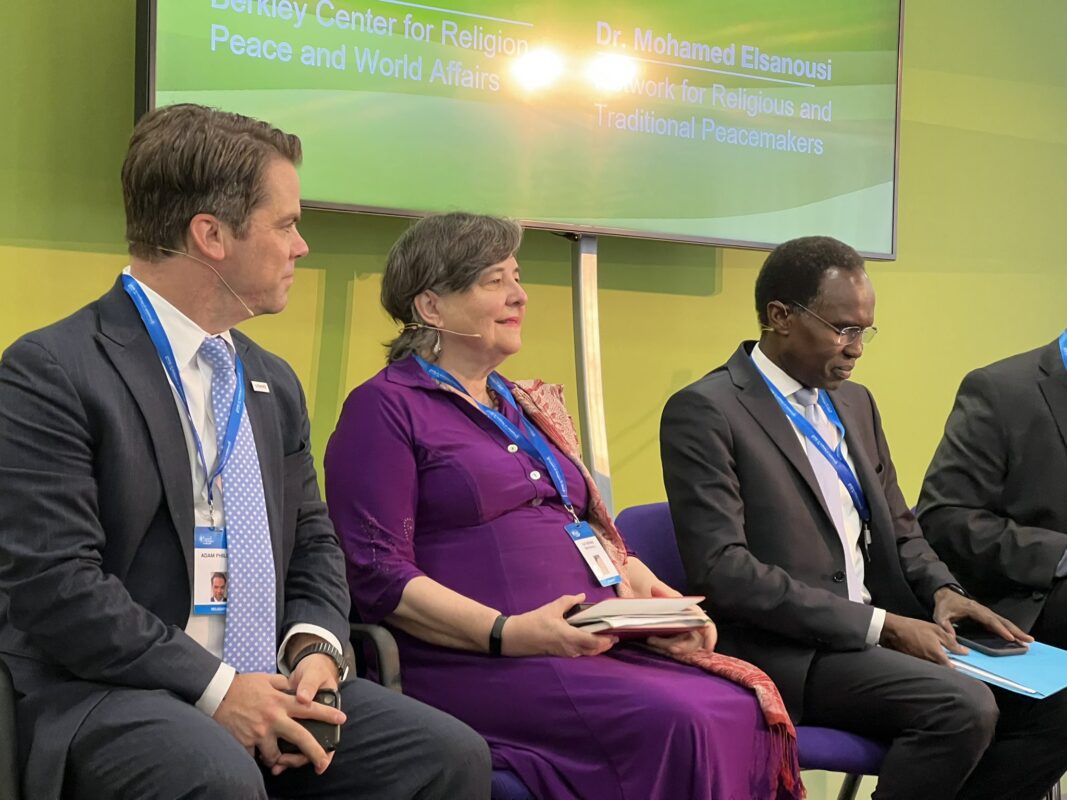Freedom of Religion or Belief and Advancing the 2030 Agenda

Civil society and policy makers from around the world convened in the United Kingdom in early July for two critical meetings to advance freedom of religion or belief (FoRB): ‘Freedom of Religion or Belief and the SDG agendas’ at Wilton Park and the Ministerial to Advance Freedom of Religion or Belief hosted by the Government of the United Kingdom.
In a run-up event to the Ministerial, the Wilton Park Conference served as an opportunity to engage religious actors and other key civil society representatives, academics, and policy makers in a focused and practical dialogue that sought to explore and clarify the objectives surrounding FoRB, and in turn, inform the International Ministerial Conference on Freedom of Religion or Belief hosted by the UK Government. Several Network members, including Adyan Foundation, Dawah Institute, PaRD, KAICIID, and World Faiths Development Dialogue, to name a few, joined the convening and showcased steps forward on how FoRB can achieve the SDG’s and ensure sustainable recovery from the COVID-19 pandemic.
The general consensus from the Conference is that the more freedom religious actors have, the more these actors can contribute to issues like the climate crisis, pandemics, or food insecurity. Accordingly, more attention must be paid to strengthening global collaboration on the interlinkages between FoRB and the 2030 Agenda.
Peacemakers Network Executive Director, Dr. Mohamed Elsanousi joined USAID Faith Based and Neighborhood Partnerships Director, Adam Philips, and World Faiths Development Dialogues Director, Professor Katherine Marshall for a panel discussion on how FoRB can support the advancement of all SDGs, with a particular focus on peace and security, inequality, and education.

In addition, Dr. Elsanousi also spoke at the Ministerial for Advancing International Religious Freedom on the topic of interreligious and inter-convictional dialogues on the importance of collaboration between government and religious actors. In addition, there must be increased attention on religiously-based documents that promote FoRB, such as the Marrakesh Declaration.
Chaired by Rev. Professor James Walters, Director of the London School of Economics Religion and Global Society Unit and chaplain to the University, Dr. Mohamed Elsanousi joined Mr. Rashad Hussain, US Ambassador-at-Large for Religious Freedom, and Dr. Susan Kerr, Senior Adviser on Freedom of Religion or Belief at the Organization for Security and Cooperation in Europe’s (OSCE) Office for Democratic Institutions and Human Rights for discussion focused on effective interventions and obstacles to advancing FoRB.
What is the Ministerial to Advance International Religious Freedom?
As explained by the 2022 Ministerial Host, the UK Foreign, Commonwealth & Development Office, noted the summit brings together international governments, parliamentarians, faith and belief representatives and civil society. It aims to increase “global action on freedom of religion or belief for all” by protecting and promoting the cause and also by preventing violations and abuses of that freedom. Five hundred delegates from around the world joined the two day Ministerial.
This was the first in-person international ministerial conference on this issue since 2019. The 2020 event was held virtually in Poland.
In 1981, the UN Declaration on the Elimination of All Forms of Intolerance and of Discrimination Based on Religion or Belief was passed. Today, some policymakers and civil society actors are proposing a shift to the expression Freedom of Religion and Belief to emphasise the inclusiveness of the concept and to highlight that there is no either/or.
The EU’s first FoRB Special Envoy, Ján Figel, reported at the end of his tenure that “high-level political engagement can open closed doors, but it needs to be coupled with sustained efforts and initiatives on the ground.”
